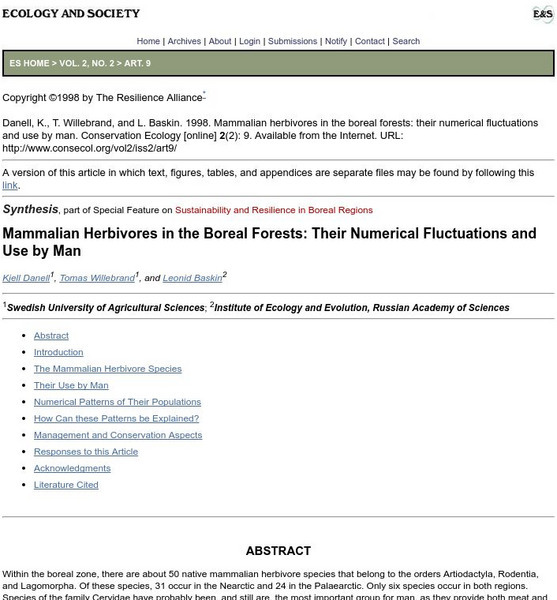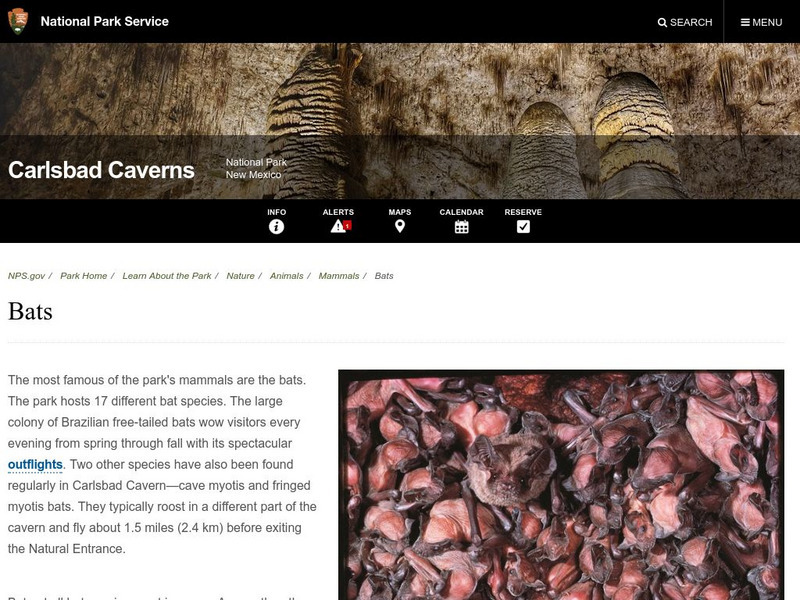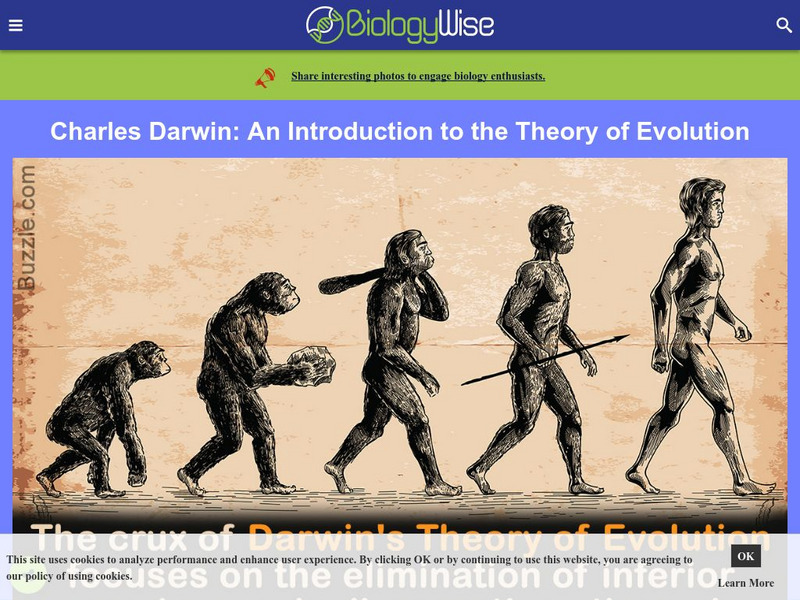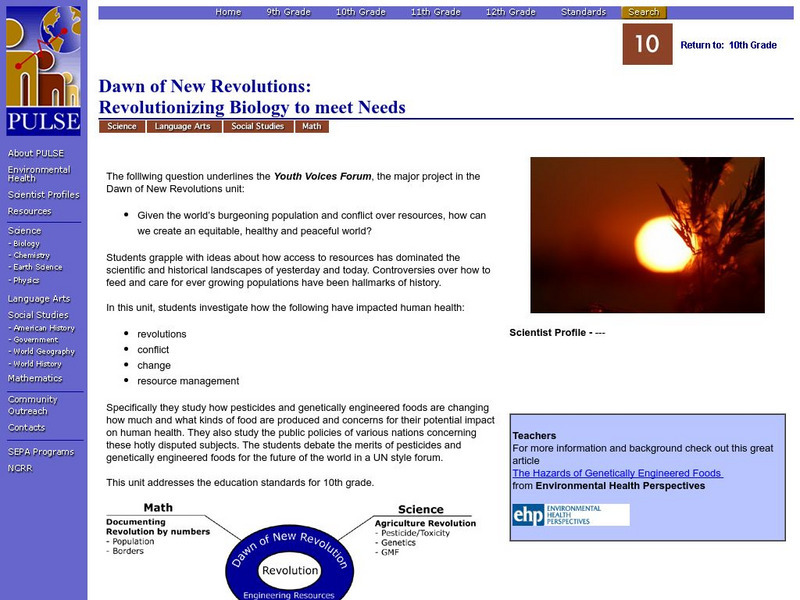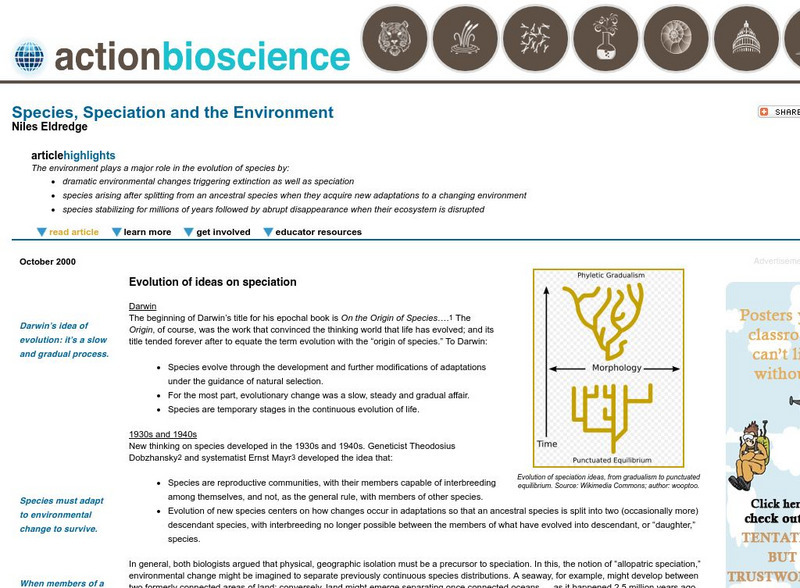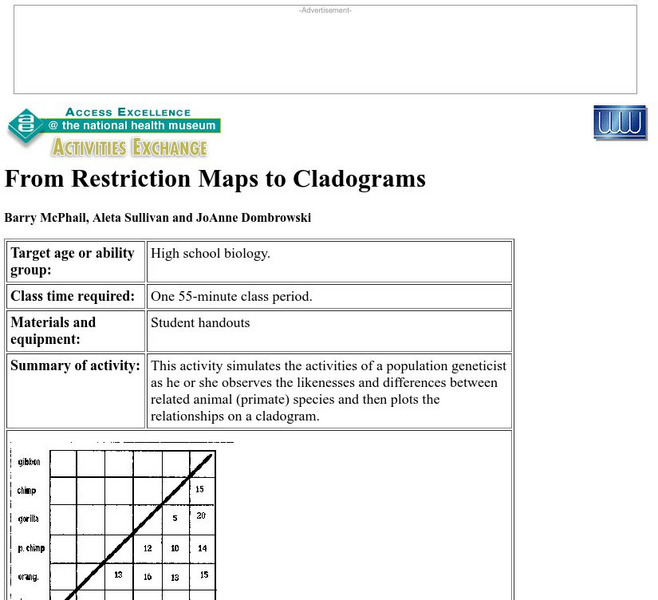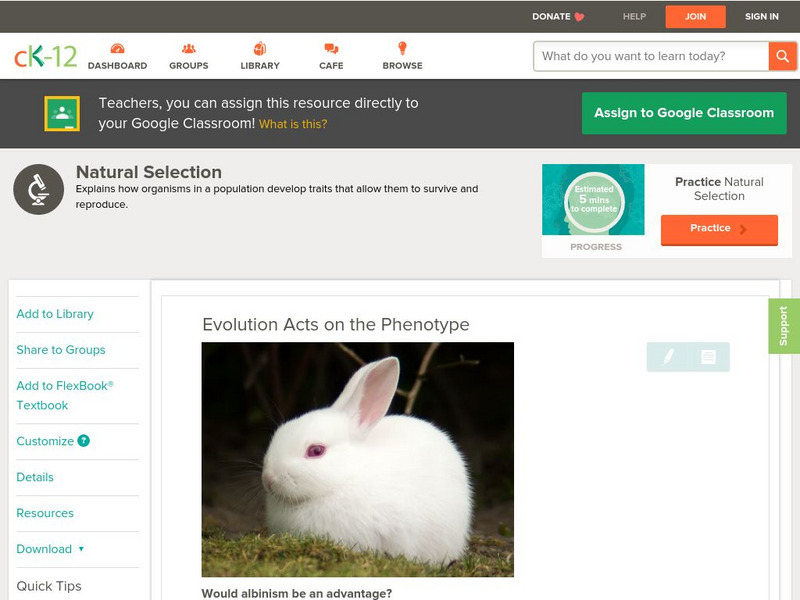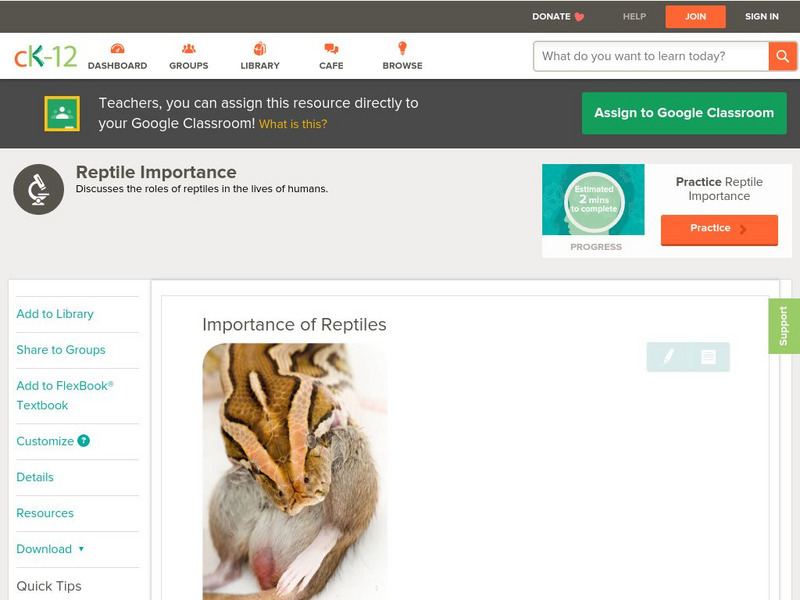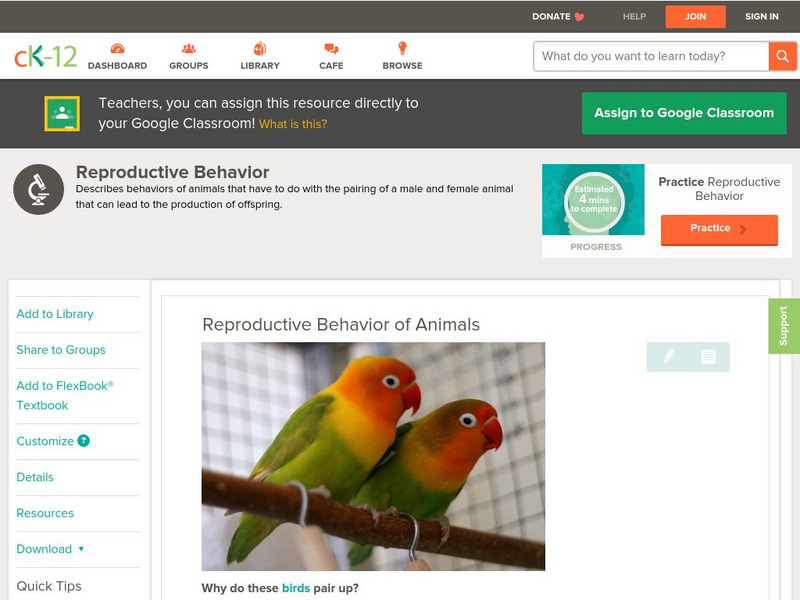BiologyWise
Biology Wise: Crossing Over and Why Is It Important in Meiosis?
Explains what meiosis is and what happens during crossing over where genetic material is exchanged between chromosomes. This process is important for ensuring that there is lots of genetic variation in a population as it improves survival.
Other
Resilience Alliance: Mammalian Herbivores
This site from the Resilience Alliance provides an in-depth look at mammalian herbivore population patterns in boreal forests. It also discusses man's use of these herbivores.
Curated OER
National Park Service: Carlsbad Caverns Natural Resources: The Bat Colony
Part of the National Park Service website, this page provides general info. about the resident bat population, and links to more specific bat info. For the bat enthusiast!
TED Talks
Ted: Ted Ed: Making Sense of How Life Fits Together
Bobbi Seleski catalogs biology from our body and beyond, tracking how unicellular organisms, tissues, organs, organ systems, organisms, populations, communities, ecosystems, and our biosphere build off of each other and work together....
BiologyWise
Biology Wise: Charles Darwin: Introduction to the Theory of Evolution
The main concepts in Charles Darwin's theory of evolution are described, how natural selection works, and the ongoing criticism of evolution from Creationists.
University of Arizona
Pulse: Dawn of New Revolutions
A cross curricular unit focusing on how much and what kinds of foods are produced because of pesticides and genetically engineered foods. Students will investigate the impact on humans due to the new technology in food production. Topics...
Alabama Learning Exchange
Alex: Endangered Species
This is a biology or environmental science activity that incorporates technology. This project-based plan is designed to be used as students study the factors that affect the dynamic equilibrium of populations and ecosystems. This...
American Institute of Biological Sciences
Action Bioscience: Species, Speciation and the Environment
The American Institute of Biological Sciences offers this article by Niles Eldredge, evolutionary theorist and curator at the American Museum of Natural History. Eldredge begins with Darwin's theories and summarizes subsequent thought,...
National Health Museum
Nhm: Amino Acid Sequences Show Evolution
This lesson plan focuses on differences in the amino acid sequence of hemoglobin and myoglobin proteins. They use the number of differences to create a phylogenetic tree.
National Health Museum
Access Excellence: Making a Phylogenetic Tree Lesson Plan
Constructing phylogenetic trees may be a daunting task for learners, but this lesson plan is a simulation of what molecular biologists must do to determine relationships. This plan is for students who have a good grasp of DNA structure...
National Health Museum
Nhm: Restriction Maps to Cladograms Lesson
This lesson plan requires students to analyze DNA restriction maps to determine the differences in the sequence for several primates and humans. They then use the information to create a cladogram.
World Wildlife Fund for Nature
World Wildlife Fund Russia
This resource provides bilingual news and facts about wildlife issues and projects across Russia. A small collection of beautiful images and video clips. Special section for kids with puzzles and nature-related games such as Rescue the...
McGraw Hill
Glencoe Science: Biodiversity and Conservation: Chapter Test Practice
Take this fifteen question practice assessment to review the concepts of biological diversity and conservation.
CK-12 Foundation
Ck 12: Episd: Biogeography
[Free Registration/Login may be required to access all resource tools.] Why connect biology and geography? This module will provide resources for students to understand continental drift theory, human population and its distribution, and...
CK-12 Foundation
Ck 12: Episd: Predation
[Free Registration/Login may be required to access all resource tools.] Discover the predator prey relationship and the ways organisms adapt to predation. Understand the impact predation has on population size and evolution.
Other
Islands of Hawaii
This site describes the biology, climate, history, economy, education, geography, geology, government, population, and tourism of the Hawaiian islands.
Science Struck
Science Struck: The 6 Chief Levels of Organization in Ecology
Describes six levels of organization in the biological world - individual species, population, community, ecosystem, biome, and biosphere.
CK-12 Foundation
Ck 12: Life Science: Hardy Weinberg Theorem
[Free Registration/Login may be required to access all resource tools.] Sometimes understanding how common a gene is within a population is necessary. Or, more specifically, you may want to know how common a certain form of that gene is...
Oswego City School District
Regents Prep: Ecosystems/communities
Abiotic factors vary in the environment and determining the types and numbers of organisms that exist in that environment. Factors which determine the types and numbers of organisms of a species in an ecosystem are called limiting...
Khan Academy
Khan Academy: Genetic Variation in Prokaryotes
Study the mechanisms that generate variation in prokaryote populations. Also learn about transduction, transformation, conjugation, as well as transposable elements.
CK-12 Foundation
Ck 12: Life Science: Health Hazards of Air Pollution
[Free Registration/Login may be required to access all resource tools.] The World Health Organization (WHO) reports that 2.4 million people die each year from causes directly related to air pollution. Worldwide, there are more deaths...
CK-12 Foundation
Ck 12: Life Science: Evolution Acts on the Phenotype
[Free Registration/Login may be required to access all resource tools.] Natural selection acts on the phenotype (traits or characteristics) of an individual. On the other hand, natural selection does not act on the underlying genotype...
CK-12 Foundation
Ck 12: Life Science: Importance of Reptiles
[Free Registration/Login may be required to access all resource tools.] Reptiles play an important role in the life of humans. In addition to playing an important role in many food chains, which keep the populations of small animals...
CK-12 Foundation
Ck 12: Life Science: Reproductive Behavior of Animals
[Free Registration/Login may be required to access all resource tools.] Some of the most important animal behaviors involve mating. Mating is the pairing of an adult male and female to produce young. Adults that are most successful at...
Other popular searches
- Population Biology Predation
- Biology Population Ecology
- Global Population Biology
- Population Biology Marine
- Population Biology Lily Pad
- Biology Population Growth
- Biology Population Density
- Biology Population

